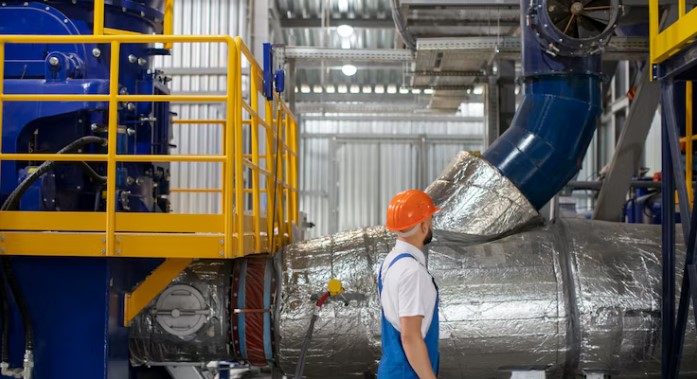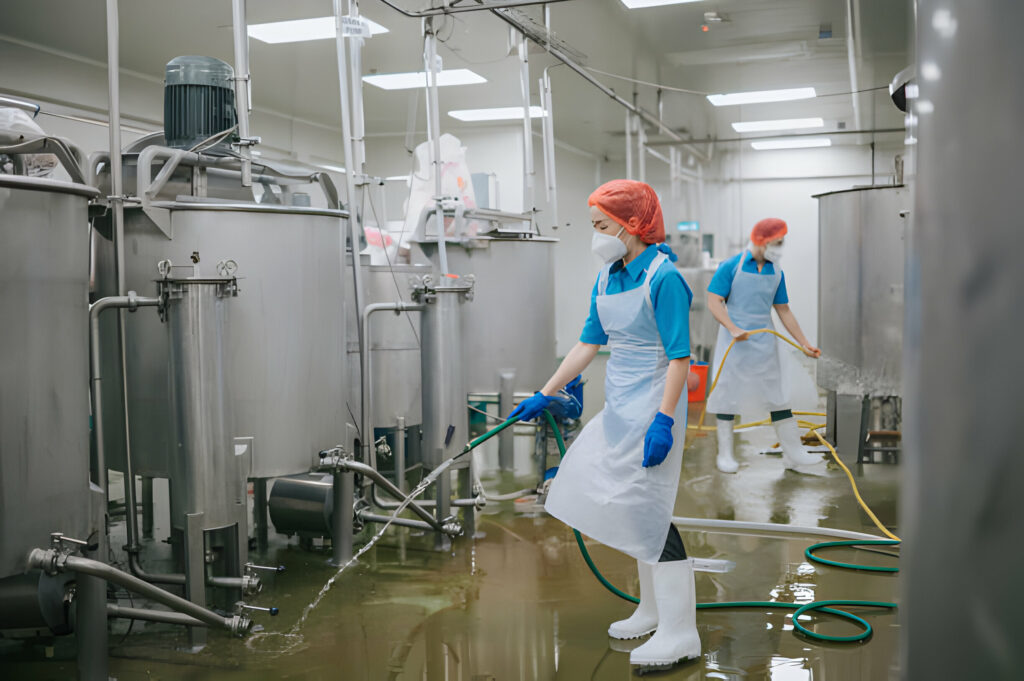The Environmental Impact of Using Water Filtration Systems

Introduction
Today, in the epoch shaped by the unwavering attention to environmental sustainability, the significance industrial wastewater treatment only transcends functionality. They become the embodiment of a fundamental cornerstone of modern civilization’s commitment to protect ecological integrity. Affirming the values of environmentalism, we venerate the irreplaceableness of water filtration as being responsible for the linchpin that guarantees universal access to drinking water, regarded as an inalienable human right. In this respect, water filtration systems assume their place as the front line, reinforcing public health protection and eradicating the dire consequences of pollution’s relentless impacts.
The narrative of water filtration systems truly becomes more than mere industrial machinery and evolves into sterna, continuing the profound narrative of social endurance and environmental awareness. These systems serve as the guardians responsible for purifying our greatest resource, water, and securing the sustenance of life from it without impediments. Nonetheless, within this sacred mission, the inevitability of water filtration systems carrying their ecological footprint echoes, representing a turbid wake of consequences woven into the interconnected fabric of the modern world.
Industrial Wastewater Treatment
The rationing of pollutants is what causes a huge water volume, and industrial activities produce a large portion of pollutants. Hence, the act of industrial wastewater treatment and purifying it before discharging it into the environment creates the urge for the water operator systems. Some of the systems involved in removing any form of contamination and impurities to make it fit for reuse or decontamination are coagulation, flocculation sedimentation, and filtration. Industrial wastewater treatment focuses on environmental preservation, although there are environmental consequences.

The energy requirement of the water operator systems is the first environmental concern. High amounts of energy are used to power the pumps, aerators, and various other machines required, depending on the level and intricacies of the process. Greenhouse gas emissions are a major contributor to global warming. It is, therefore, important that water filtration companies implement environmentally friendly and consumer-friendly systems.
The environmental concern emanating from the operator systems is how the manufacturing companies dispose of the sludge from the process. The waste produced when the remnants are left to rot anaerobically produces greenhouse gases. It is therefore important to regulate them to prevent soil and water pollution. Sludge treatment systems such as anaerobic destruction and incineration are used to weigh down the impacts by converting the organic solid into a reusable energy source.
Water Treatment Industry
And last but not least is the industry’s environmental footprint. The Water treatment industry is not only about treatment but also about manufacturing, transportation, and maintenance. Fabrication of filtration media, chemicals, and equipment is an activity that requires resources and leads to considerable emissions, an additional source of environmental impact on the industry.
Besides, the transportation of both raw materials and fabricated products in the form of the industry’s carbon footprint is also involved. Second, the operation and maintenance of the water filtration systems also require the use of various chemicals. These are, for example, disinfectants and coagulants whose improper management is felt ecologically. Broken equipment or a fire in the manufacturer’s staff handle or storage case can lead chemicals to infiltrate the waters nearby, poisoning aquatic habitats. Therefore, safety and sanitary regulations should be observed by all.
Mitigating Environmental Impact
Nonetheless, the constant advance of technology within the water treatment industry and growing attention to water filtration’s environmental sustainability will allow for balancing the environmental effect of treatment technology. For instance, the broader utilization of alternative energy sources like solar and wind power may decrease fossil fuel utilization and carbon emission during the water treatment plant’s operation.
Additionally, spreading the use of eco-friendly materials and processes in the creation and operation of treatment systems may also boost the systems’ environmental sustainability. What is more, promoting eco-friendly water use and design may alleviate the pressure on water supplies and slow the necessity for extensive treatment and wastewater settlement. Finally, the development of decentralized treatment options such as end-of-use filters or greywater recycling systems would minimize the treatment’s overall water impact.
Habitat Disruption and Biodiversity Loss
Abstraction of water, which is predominantly linked with the operation of water filtration systems for industrial and municipal usage, largely occurs on a large scale. This can have repercussions on natural ecosystems and wildlife. Deformed flow patterns, dried-up levels of rivers and lakes, and disturbed water chemistry impact the aquatic flora and fauna.
The most dangerous in this regard also appears to be water installations such as dams and reservoirs, which cause damage via habitat deprivation and fragmentation, as well as through the displacement and killing of wildlife. Also, the artificial reservoirs’ landfill is a significant factor contributing to the release of methane and other greenhouse gases from the organic matter decomposing in the submerged areas.
Chemical Contamination and Ecotoxicity
The addition of chemicals with the role of treatment, including chlorine employed for maintenance disinfection and fluoride utilized for fluoridation, is also damaging to aquatic fauna and flora. Along with other residuals originating from sediments and obtained from aquatic biota, they bio-accumulate in wildlife organisms and recur in people, thus also posing a peril to human health.
Aside from that, the presence of emerging contaminants like pharmaceuticals, personal care products, and endocrine disrupters in treated wastewater has an ecotoxicological impact. These chemical substances can alter the behavior, reproduction, and survival of aquatic organisms.
Water Scarcity and Resource Depletion
Furthermore, carbon emissions are also generated when manufacturing and terminating the lifecycle of water filtration. Significant energy annex usages, such as backward osmosis and membrane filtration, require a large amount of electricity, especially in areas that consume the most fossil energy to produce it. In addition, electric fields that can be installed by installing renewable resources and developing other system design solutions help reduce carbon levels in water filtration.
Natural conditions also exacerbate regions with water of poor quality, as water pollution becomes a contributing factor in natural disasters for water quality. As many recipients have pointed out, handing water to be eaten cleans it and takes away something else when it comes to resources for human use.
Conclusion
In conclusion, water filtration systems have been an essential product in the efforts to combat water quality problems and protect human health. However, as demonstrated, water filtration systems’ environmental cost on the natural ecosystem is too high to neglect a section consisting of energy, waste, and chemical use that spreads from treatment and cooling of industrial wastewater systems to still advanced end-of-the-treatment water systems. The environmental cost may be reduced through technology, legislation, and other conscious means without regressing the way the planet’s future water is set. Miniaturizing these systems to expose populations to the aerosol is a primary goal, but not under the needs of what requires to be addressed.
Read more articles on Mirror Eternally





